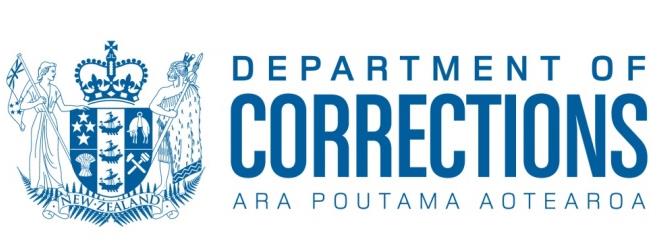
08 January 2025
C190258
Alessia Spense
[FYI request #29376 email]
Tēnā koe Alessia
Thank you for your email of 29 November 2024 to the Department of Corrections – Ara
Poutama Aotearoa, requesting information and statistics about people subject to
supervision and intensive supervision. Your request has been considered under the Official
Information Act 1982 (OIA).
You requested:
I seek the following statistics for the past 5 years broken down by year:
- The number of people on supervision or intensive supervision sentences (annually)
Of those:
- how many are offered work related courses.
- How many are offered any treatment or counselling.
- How many are offered BOTH work related courses and treatment or counselling.
- How many, when offered, complete the work related courses.
- How many, when offered, complete the treatment and counselling.
- If no completion, what is the reason.
- Recidivism rates for those who completed work related courses, those who partially
completed work related courses, and those who did not complete work related
courses.
- Recidivism rates for those who completed treatment and counselling, those who
partially completed treatment and counselling, and those who did not complete
treatment and counselling.
- what is the average time (from sentence start date) before a person on
supervision/intensive supervision is referred to either work related courses or
treatment and counselling?
Supervision and Intensive Supervision are among a range of community-based sentences
and orders that may be imposed by the Courts and which are administered by Corrections.
NATIONAL OFFICE, WELLINGTON
Mayfair House, 44 – 52 The Terrace, Wellington, 6011, Private Box 1206, Wellington 6140,
Phone +64 4 460 3000
www.corrections.govt.nz
Information about these sentence types is available at the following links:
https://www.corrections.govt.nz/our_work/in_the_community/sentences_and_orders/sup
ervision https://www.corrections.govt.nz/our_work/in_the_community/sentences_and_orders/inte
nsive-supervision In response to your first question, below is the number of starts of an Intensive Supervision
and supervision sentence broken down for the past five years. This means that if someone
starts a sentence more than once within that financial year, they will be counted for each
start. In line with Corrections’ standard reporting, we have provided the information by
financial year which runs from 1 July to 30 June on any given year.
When reviewing these figures, it is important to note that Corrections does not decide who
is in the community or prison. Rather, Corrections manages those in custody and on
community-based sentences and orders at the direction of the courts and New Zealand
Parole Board.
Financial Year
Intensive Supervision
Supervision
2019/20
4,452
9,915
2020/21
5,070
11,019
2021/22
3,863
8,401
2022/23
4,331
9,686
2023/24
4,520
9,980
The remainder of your questions include requests for specific subsets of individuals
captured in your first question. Corrections does not have reporting functions that enable us
to readily retrieve the information you have requested. Instead, the information is held ,
would exist on thousands of individual files and reviewing those files would impair the
effective administration of our data analysis and Ministerial Services teams.
In accordance with the OIA, we have considered whether to affix a charge or extend the
time limit for responding. However, given the scale of the request we do not consider that
this would be an appropriate use of our publicly funded resources. Therefore, the remainder
of your request is refused under section 18(f) of the OIA, as the information cannot be made
available without substantial collation or research.
As per section 18B of the OIA, we have considered whether consulting with you would
enable the request to be made in a form that would remove the reason for the refusal.
However, we do not believe these parts of the request can be refined in this instance.
Each person’s rehabilitation and reintegratiion pathway is unique and based on many
considerations including the nature of their offending, their risk of re‐offending, their
motivation to change, their physical and mental wellbeing, and the support they have
around them.
Dependent on their sentence or order, needs, the conditions of their sentence and their
willingness to engage, the provision of services may include health services, mental health
and addiction programmes, cultural support services, educational opportunities, vocational
and employment training, motivational sessions, offence-focused programmes, wrap-
around whānau support, reintegration services, intensive residential programmes, and
transitional accommodation support.
While we are unable to provide the specific information you have requested, you may wish
to visit the ‘Community sentences and orders statistics’ section of our website, which
provides some detailed breakdowns of the types of sentences and orders those in the
community are subject to. This information is reported quarterly, and is
available here.
In response to the part of your request that asks about recidivism rates, while Corrections
cannot answer your question as it is currently framed, Corrections currently measures our
outcomes and impact on reoffending at a high level, using tools such as the Rehabilitation
Quotient (RQ) and the Recidivism Indices (RI).
The RQ measures the impact that interventions have on reoffending. It is a percentage point
difference between the recidivism rates of those who participate in programmes and a
statistically matched sample who do not.
The RI is the percentage of people in Corrections’ management in any given cohort who are
reconvicted within a given period of time (the follow-up period), and who receive either a
prison sentence (re-imprisonment) or any Corrections-administered sentence (re-
sentencing). RI rates relate to recent cohorts of people released from prison, or who started
a community sentence, including sentences of Supervision of Intensive Supervision, during a
full 12-month period ending 15 months ago.
This information is publicly reported in Corrections’ Annual Reports, which are available
here.
Please note that this response may be published on Corrections’ website. Typically,
responses are published quarterly or as otherwise determined. Your personal information
including name and contact details will be removed for publication.

I hope this information is helpful. I encourage you to raise any concerns about this response
with Corrections. Alternatively, you are advised of your right to raise any concerns with the
Office of the Ombudsman. Contact details are: Office of the Ombudsman, PO Box 10152,
Wellington 6143.
Ngā mihi
Brydie Raethel
Manager Ministerial Services
People and Capability

